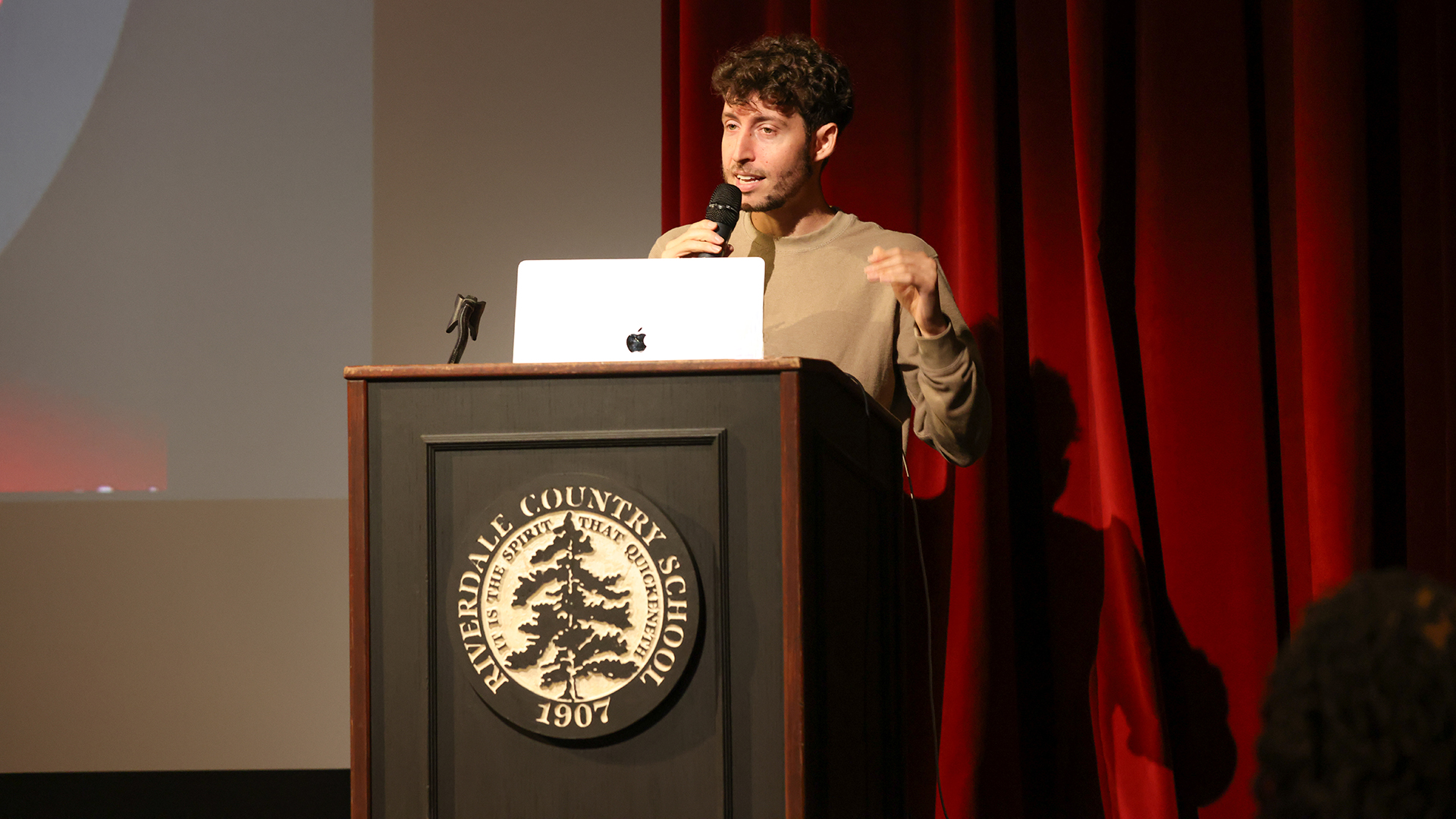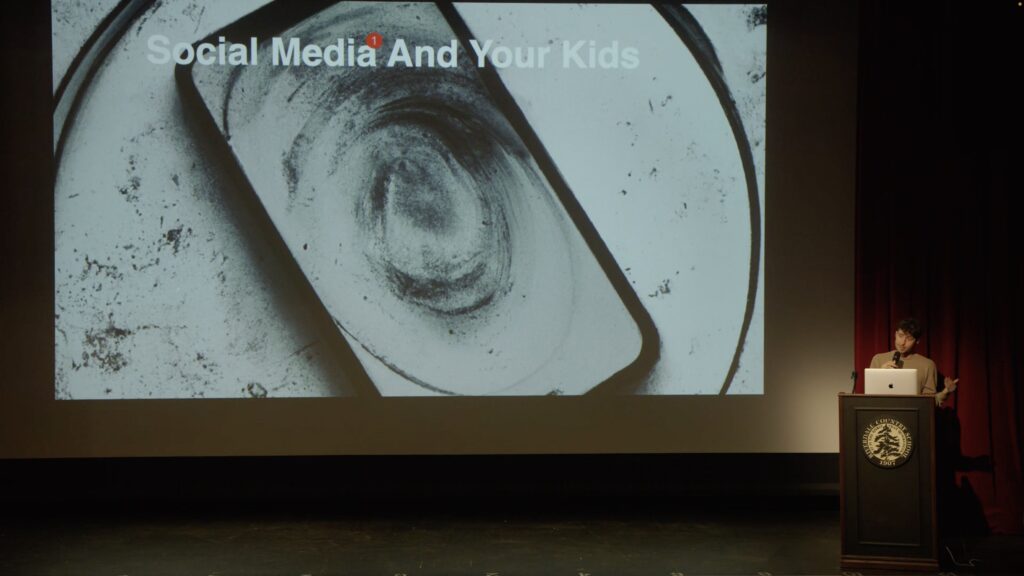
Max Stossel, founder of Social Awakening, an organization that “helps teens, schools, and parents survive and thrive in this digital world,” visited Riverdale to share strategies with students and parents about how to safely engage with social media. According to Social Awakening’s website, social media is “drastically impacting teen-agers mental health, communication, productivity, focus, social skills, and self-worth.” Mr. Stossel shared strategies to help solve these problems by getting out from under the shadow of omnipresent social media.
Mr. Stossel’s insights were born from his tenure at a technology startup, where he was instrumental in creating attention-holding algorithms. However, a pivotal realization of the detriment of his efforts led him away from the tech industry. “I was designing notifications on your phones and computers to take you out of your world and bring you into mine,” he said.
Now, as Head of Education at the Center for Human Technology, Mr. Stossel consistently advocates for technology to be clearly aligned with people’s best interests.
Christina Young, Riverdale’s Middle and Upper School Director of Counseling and Health Education, said, “Real conversations about social media use empower teens to consider how it impacts their daily experiences and sense of connection to others. The social media landscape will keep evolving, and we all need to use our critical thinking skills to consider how and when to engage with it and what boundaries protect our health and well-being.”
One of Mr. Stossel’s thought-provoking questions to both students and parents was, “Am I using this technology, or is this technology using me?” In a Middle School assembly, the room buzzed as students turned to one another to talk about the apps and platforms troubling them and causing them to reevaluate their relationship with social media.
Mr. Stossel also stressed technology’s addictive and distracting nature and urged students to resist the sort of mindless scrolling that he sees as a part of a deep problem for many social media users.
There are only two groups who call their customers “users” – drug dealers and technologists.
Mr. Stossel’s presentation emphasized the impact of features like Snap streaks, remarking, “Streaks are a really powerful tool to get people to come back and use the app every day. And then this weird thing starts to happen where, if we break the streak, what does that mean about our friendship?”
He urged students to take control of their technology use: “What with our phones, with our computers, what are we doing on purpose, and what are we doing to sort of mindlessly have fallen into this kind of trap?”
To parents, Mr. Stossel shared numerous strategies, such as delaying access to certain social media apps, and putting off the purchase of a child’s smartphone until 8th grade.

He also urged students and parents to create “phone-free zones” within the home – in bedrooms, at the dinner table – and foster meaningful conversations apart from technology. Parents and guardians can model responsible behavior with smartphones and devices, setting their own devices aside in obvious ways that children can take note of.
Adults can also ask questions to spark intentional conversations, such as, “How does that game/app make you feel?” instead of, “Do you like that game/app?” When and if issues related to body image, social anxiety, mental health, and lack of focus present themselves, Mr. Stossel advised parents to consider a teen’s use of social media as a possible culprit, since research draws connections between social media habits and numerous problems for teenagers.
Both the sessions for Middle School students and for parents/guardians concluded with an open dialogue and Q&A for sharing experiences, successes, and challenges at school, with friends, and at home.
“We were pleased to host Max Stossel on the Hill Campus today,” said Head of School Kari Ostrem. “We will be talking more as a community about the ideas he shared and other strategies to support our students as they engage with technology. Our goal is to equip students with the tools they need for learning and with the ability to think critically about those tools. We see this as a fundamental part of our commitment to their mental health and wellness.”